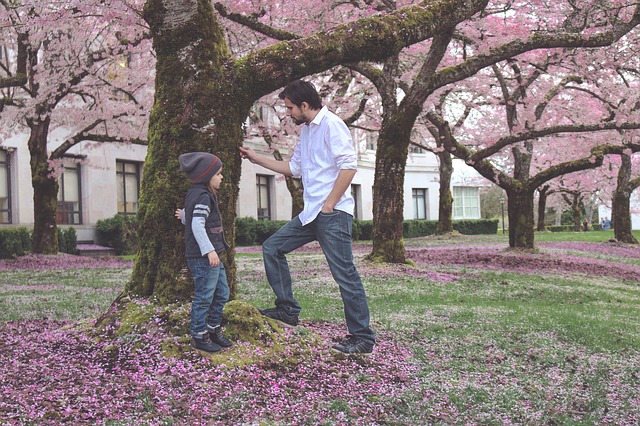As a parent, family member or carer

If the parent or family member has not heard voices, it might feel like uncharted territory and therefore very daunting. If the child is distressed because of their voices, it might feel overwhelming and deeply upsetting for the adult who might not be sure what to do or where to look for information or support.
There are additional complexities if the child or young person has been hospitalised or is receiving support within mental health services. Many parents and family members have mixed feelings about professional help. On the one hand, many seek it and indeed fight for it, but on the other, some worry about the quality of care or the consequences of being ‘in the system’. Many parents might be anxious about the long-term consequences of diagnosis, hospitalisation or medication. If the young person or adult child is being cared for by the parent or family member, this might entail significant lifestyle changes and perhaps even a shift in identity, with some people identifying as ‘carers’ and others refusing to do so.
Many parents and family members speak of the difficulties of navigating the mental health and welfare system on behalf of their children, as well as the emotional toil in advocating for their care and of feeling like they are sometimes ‘fighting’ the system. It can easily lead to burnout and feelings of isolation, as they might not be able to share their worries with their friends. Many carers feel their role is essential but deeply undervalued by society. Additionally, some may feel they are partly to blame, or they are being blamed, for their children’s voices. For example, if the child or young person’s voices seem to be somehow connected to earlier life events, this can cause a range of emotions, from guilt and shame to anger and fear.
Systemic therapy like Open Dialogue, which involves the family, is not widely available on the NHS, and whilst some parents and carers find it very beneficial, it might not work for others. There might also be differences of opinion or attitude between parents and family members about the best options for treatment or support, which, alongside other worries, might create strain within the family.
What many parents or carers speak of is the solidarity and understanding they can find with other parents or carers, either online, or through formal or informal support groups.
When my son first became mentally unwell, instinct led me to ask him if he was hearing voices. When he replied ‘How did you know?’ I don’t remember what I replied, but I do remember sobbing for most of the night after he’d gone to bed. My reaction was one of terror, and my son quickly picked that up.
It took me ten years to learn to be curious, less afraid. Now I wanted to know who they were and what they said.
My son had learned to be more guarded. He told me the voices had for many years threatened him to never share their messages. They told him to not talk to me, to avoid voice-hearers’ groups, to not take medication. Maybe because I am now interested rather than panicking, he has gradually opened up to me about his voices.
They are not kind; they have often suggested he should kill himself, so he is very relieved that medication has largely silenced them. But now that we can talk about them, together we have been able to appraise their advice, and begin to sense the fear that lies under their threats. I found the book ‘Overcoming Distressing Voices’ by Mark Hayward, useful in knowing how to help my son, who has since even occasionally allowed me to speak to his voices.
I have learned so much that twice in the past year in the course of my (not mental health related) work, I sensed that two separate people were hearing voices just by noticing their behaviour. One person I was talking to was unable to pay me attention or complete his sentences, and the other was looking intently at a space just beyond me. ‘I’m just wondering if you might be hearing voices?’ I asked. I was surprised when both said ‘yes’, but was able to respond with genuine interest and useful advice.
How I wish I had been able to react that way to my own son all those years ago
Jenny*
I could not relate to my daughter, it was as if some alien had taken over her body and our previously good relationship had become ‘spiky’, unpredictable and difficult. Ward staff were busy with their patients and no-one had time to help me understand and learn how best to help either her or myself. Some staff treated me as if I was responsible for her situation and seemed openly hostile. I had been a respected professional so that barrage of antagonism was very new. It was a time of the deepest despair and isolation I have ever known. Friends didn’t know what to say or do and whilst I felt for their embarrassment, that didn’t help me either, and feeling awkward, they found it easier to leave me alone. For the first time in my life for months, I could see no way forward; I was lost.
Judith Varley, ISPS UK
This is where we are at after two years: my heart would favor causes like psychological underlying issues or struggles to make sense of the world and my son’s place in it; my brain has to acknowledge that medication may be (hopefully temporarily) part of the way forward although I believe it does not address the underlying issues.”
In my own experience, it has been important to apologise for my original unwillingness to believe my family member’s voice-hearing and the isolation that may have caused. Equally it has been important to forgive myself and place my denial in the social context of stigma and ignorance about voice-hearing.
Looking for support?
Voice Collective supports children and young people who hear voices, as well as their parents and carers. Their website has a wealth of resources, and the online forum, which is moderated by Voice Collective staff and volunteers, has separate sections for both parents and young people.
The Carers’ Trust has information and resources as well as an online forum for carers over the age of 18. Carers’ Trust Network Partners offer services such as emotional and practical support, crisis or emergency services, information and advice, and group support.
Rethink Mental Illness was founded by carers, and whilst it has become a broader national charity, it still has a strong carer and family voice within it. Their website has a special section for families and friends which contains information and resources, including on carer support services and respite care.
Hafal is Wales’ leading charity for people with serious mental illness and their carers. Hafal Crossroads provides practical help, information, advice and support to unpaid Carers living in Ceredigion, Pembrokeshire and Powys.
Cause is a peer-led regional charity offering services to families, partners and friends across Northern Ireland caring for a loved one who has experienced serious mental illness. They offer a helpline, local carer support groups, training, one-to-one carer support and respite care.
Support in Mind Scotland support people with a diagnosis of schizophrenia and psychosis and the impact that this has on families.
EUFAMI is a European membership organisation which represents all family members of persons affected by severe mental ill health at European level so that their rights and interests are recognised and protected.
ISPS UK is a small charity which advocates for social and psychological approaches to psychosis. It organises events around the country which are open to people with lived experience, professionals and family members and carers.
Find out more
Read
Sarah Parry and Filippo Varese (2017). Top tips for parents of children who hear voices. Mad in America.
Sarah Parry and Filippo Varese (2017). Parents, don’t panic if your child is hearing voices, it’s actually quite common. The Conversation.
Seetha Subbiah (2016). Did you hear that? Help for children who hear voices. World Scientific Publishing Company.
Judith Varley (2017). Thoughts on stepping down from the ISPS UK Committee. ISPS blog. In this article, Judith shares her experience of caring for her daughter who was diagnosed with psychosis.
